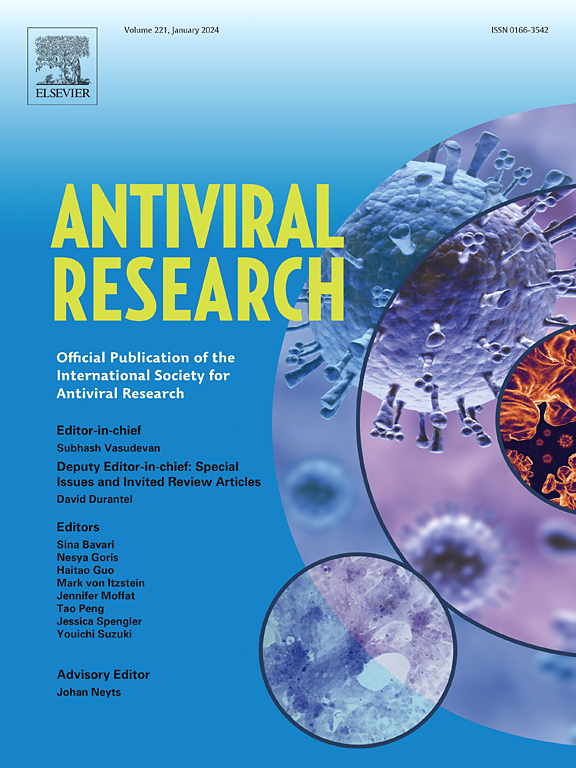Host-directed approaches in the pursuit of a cure for HIV
IF 4.5
2区 医学
Q1 PHARMACOLOGY & PHARMACY
引用次数: 0
Abstract
The success of antiretroviral therapy (ART) for people with HIV has been a result of direct acting antiviral small molecules that target key components of the viral life cycle, however ART must be taken life long and there is no cure. The major barrier to a cure for HIV is the persistence of a long lived and proliferating reservoir of latently infected cells that persist on ART. Cure strategies for HIV currently target host proteins to either reduce the size of the reservoir or enhance HIV-specific immunity. A major challenge of targeting a host protein is the lack of specificity for HIV and therefore increased risk of adverse events. However, cure strategies are designed to be time limited, as opposed to ART which is lifelong. Here we review host-directed cure strategies that modulate HIV transcription and infection, enhance cell death and/or increase HIV-specific immune control. Ultimately a cure strategy will require a combination of these interventions.
以宿主为导向的治疗艾滋病的方法。
抗逆转录病毒疗法(ART)对艾滋病毒感染者的成功是直接作用抗病毒小分子的结果,这些小分子靶向病毒生命周期的关键成分,然而抗逆转录病毒疗法必须终身服用,而且没有治愈方法。治愈艾滋病毒的主要障碍是长期存在并不断增殖的潜伏感染细胞库,这些细胞持续存在于抗逆转录病毒治疗中。目前,HIV的治疗策略针对宿主蛋白,要么减少储存库的大小,要么增强HIV特异性免疫。靶向宿主蛋白的一个主要挑战是缺乏针对艾滋病毒的特异性,因此增加了不良事件的风险。然而,治疗策略是有时间限制的,而抗逆转录病毒治疗是终身的。在这里,我们回顾了宿主定向治疗策略,调节HIV转录和感染,增强细胞死亡和/或增加HIV特异性免疫控制。最终,治愈策略将需要这些干预措施的结合。
本文章由计算机程序翻译,如有差异,请以英文原文为准。
求助全文
约1分钟内获得全文
求助全文
来源期刊

Antiviral research
医学-病毒学
CiteScore
17.10
自引率
3.90%
发文量
157
审稿时长
34 days
期刊介绍:
Antiviral Research is a journal that focuses on various aspects of controlling viral infections in both humans and animals. It is a platform for publishing research reports, short communications, review articles, and commentaries. The journal covers a wide range of topics including antiviral drugs, antibodies, and host-response modifiers. These topics encompass their synthesis, in vitro and in vivo testing, as well as mechanisms of action. Additionally, the journal also publishes studies on the development of new or improved vaccines against viral infections in humans. It delves into assessing the safety of drugs and vaccines, tracking the evolution of drug or vaccine-resistant viruses, and developing effective countermeasures. Another area of interest includes the identification and validation of new drug targets. The journal further explores laboratory animal models of viral diseases, investigates the pathogenesis of viral diseases, and examines the mechanisms by which viruses avoid host immune responses.
 求助内容:
求助内容: 应助结果提醒方式:
应助结果提醒方式:


